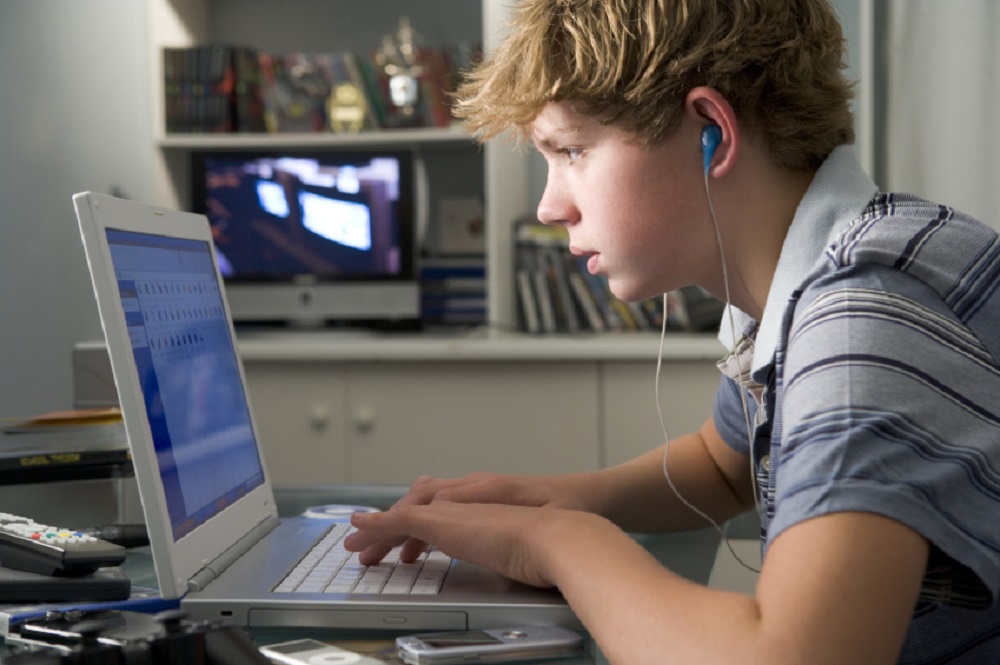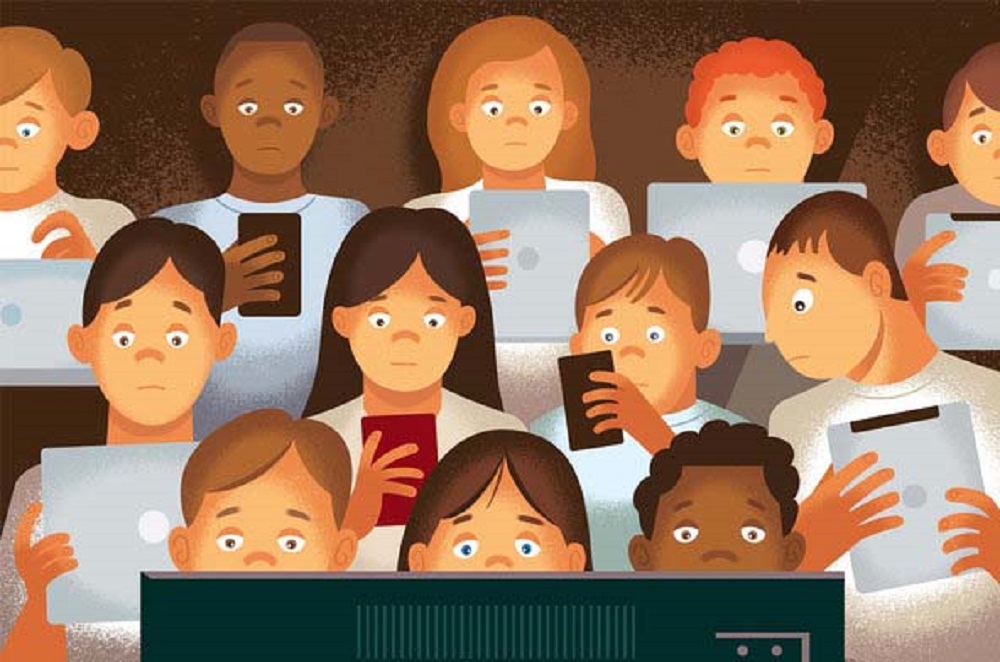RIO DE JANEIRO, BRAZIL – The study was carried out with 15 to 19-year-olds from public and private schools in the metropolitan region of Vitória, capital of Espírito Santo. They answered an internationally used questionnaire to determine their digital addiction, the Internet Addiction Test.
More than just measuring the time of use of networks, the study aims to determine how Internet access impacts users’ routines, emotions, and relationships.

This impact, according to experts and parents, is the main indicator of when Internet use becomes problematic.
Professionals from the Institute of Psychiatry of the Hospital das Clínicas da Universidade de São Paulo (IPq-HC/USP) organize support sessions for families facing this issue.
More issues
The presence of associated mental disorders is another reflex of technological dependence.
According to George Nunes Bueno, UFES researcher and one of the people in charge of the study, the proportion of youths with anxiety symptoms in the group of technological dependents is double that found among non-dependents (34 percent against 17 percent).
“The number of dependents is higher among those who say they use the Internet to have fun, spend free time or who regard the Internet as company”, explains the specialist.
Reasons
Loneliness and low self-esteem are among the reasons for the problematic use of the Internet, particularly among young people.
“Self-image is very important in adolescence and many find on social media the approval and popularity they do not find off the Internet,” says Sheila Niskier, a physician of the adolescent at the Federal University of São Paulo (UNIFESP).
According to psychologist Cristiano Nabuco, coordinator of the group of technological dependencies of IPq-HC, another reason for excessive Internet use among young Brazilians is the enormous social and cultural inequality in the country.
“On the internet, everyone is equal and has similar cultural opportunities,” he says.
He further states that urban violence in Brazilian cities makes parents themselves prefer that their children stay at home, on the computer, rather than engage in outdoor activities.
For specialists, it is important that parents know how to detect the issue, impose limits and change habits at home. “Teenagers have their foot on the throttle of emotions, they are impulsive. The control must be external. Often the use of the Internet is filling a gap in the family,” says Sheila.
Therapy with parents
Every two weeks, a group of parents and relatives of youths meet in Pinheiros, in the west zone of São Paulo, to learn how to deal with their children’s unusual addiction. Most of them are in their 40s or 50s and have teenage children.
When they first became parents, according to them, one of their main concerns was that their children would become dependent on drugs or alcohol, or that they would become victims of violence.
They also feared (and wanted to prevent) having an authoritarian relationship with their children like the one they experienced with their own parents, lacking dialogue and with many rules.
But what has been shown today as the main concern of parenthood was something unexpected: the listlessness that children exhibit with any activity that is not related to use of the Internet.
“If he can’t be on the computer, he lies in bed and sleeps all day,” says the father of a 23-year-old. “It seems that he doesn’t have any motivation in life, he can’t make decisions,” says another.
Psychologist Sylvia Van Enck, of the Integrated Outpatient Clinic for Impulse Disorders of the Institute of Psychiatry of the Hospital das Clínicas of USP, conducts the therapy sessions.
“In the past, parents enforced themselves by generating fear, and we don’t want to reproduce this today. But we also need to realize how many privileges we have granted even before the children fulfill their obligations,” says Van Enck.

Rather than blaming parents, the goal is to teach them how to balance dialogue with limits.
“Parents often fear their children’s reactions and avoid conflict, but this leads to a greater detachment. Setting tasks and obligations for them is one way to connect them to the family and make them feel useful. In online games or social media, they often feel valued and therefore want to be alone in that world,” says the psychologist.
Digital detox
With the growing number of youths reporting abusive Internet use, experts have decided to join the federal government in creating a program that raises awareness among parents and children about the proper use of technologies.
Led by the Ministry of Women, Family and Human Rights, the Reconnect program will provide brochures and informative videos on how technology can be used in a fruitful way, while not hindering aspects such as mental health and safety.
Among the actions is Detox Digital Brasil, a date in which the government will promote cultural activities inviting families to spend a day away from the Internet. The action will take place on December 8th.
Source: Estadão Conteúdo

